
Opportunity Details
Edwin Binney's Community Garden is an educational and food security project through United Way City of Kawartha Lakes.The garden offers curriculum-based educational workshops and resources for JK-grade 12 students either in-person or online. Teachings include biology, native plants and species, pollinators, food security, First Nations food systems, biodiversity and sustainability.
United Way CKL would like to adapt these lesson plans into the French language to further extend the reach of our programming and meet the needs of all students. This is critical education to expand food literacy to contribute to food security.
Le Jardin Communautaire d'Edwin Binney est un projet éducatif et de sécurité alimentaire mené par de Centraide de la ville de Kawartha Lakes.
Le jardin propose des ateliers et des ressources pédagogiques basés sur le programme d'études pour les élèves de la maternelle à la 12e année, en personne ou en ligne. Les enseignements comprennent la biologie, les plantes et espèces indigènes, les pollinisateurs, la sécurité alimentaire, les systèmes alimentaires des Premières Nations, la biodiversité et la durabilité.
Centraide de la ville de Kawartha Lakes aimerait adapter ces plans de cours à la langue française afin d'étendre davantage la portée de notre programmation et de répondre aux besoins de tous les élèves. Il s'agit d'une éducation essentielle pour étendre la littératie alimentaire et contribuer à la sécurité alimentaire.
Les supports pédagogiques sont disponibles sur le site via ce lien : http://ckl-unitedway.ca/classroom-resources/
Available Shifts
| Shift Name | Signup Max | Start | End |
|---|---|---|---|
| Lesson Plan Translation | no limit | n/a | n/a |
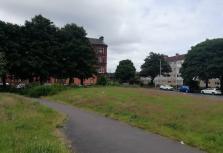
Opportunity Details
Earthwatch invites you to attend your local Wee Forest tree planting day.A Wee (Tiny) Forest is a dense, fast-growing, native woodland about the size of a tennis court. These are not only an attractive location for wildlife, but for people as well, and can provide a range of benefits in the fight against climate change.
The planting day is free to attend for anyone and open to all ages - friends and family are welcome to join as guests. Within your selected time slot, you can attend for however long you like and drop in and out of the event. Please note there will be large machinery on site prior to planting day and any damaged grass will be reseeded.
All events will be managed in line with current Government COVID-19 guidelines to create a safe day for all. Hand sanitiser will be provided on site and please bring your own face mask as appropriate.
Please wear sturdy footwear and weather-suitable clothing that you don't mind getting muddy, and a pair of gloves if possible. Please also remember to bring your own water for the day, as refreshments will not be provided.
The exact location is here 55°51'37.8"N 4°18'32.2"W and it can be accessed via Orkney Street or Broomloan Road.
The nearest car parks are :
- Govan Cross Shopping Centre, 256 Golspie St, Govan, Glasgow G51 3BB
- Albio Car Park, Edmiston Dr, Glasgow G51 2YU
Available Shifts
| Shift Name | Signup Max | Start | End |
|---|---|---|---|
| 10:00-12:30 Morning Slot - come for as long as you like within this time | 50 | n/a | n/a |
| 13:00-16:00 Afternoon Slot - come for as long as you like within this time | 50 | n/a | n/a |
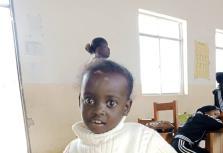
Opportunity Details
We are looking for different skilled and unskilled people to help us volunteer in our Charity kindergarten school, we are establishing a plants growing including fruits planting, gardening establishment to give nutrition food to the all kids at the kindergarten for the better health even though water is a problem herealso we are looking for people to help us teach our kids in English in all subjects , which will improve their learning and future also to train them computer skills , we do this in exchange for food and free local meals , we are looking to start building classrooms at A joy school in Mafinga for this reason we would kindly ask for volunteers who are willing to offer their hand help in building and making tables, chairs ,benches and wooden playground in wood work activities. , Also if you would contribute to raise funds so that we can dig/drill a borehole to get water for health reasons including wash hands, drinking , hygiene and uses.
Available Shifts
| Shift Name | Signup Max | Start | End |
|---|---|---|---|
| General | 6 | n/a | n/a |
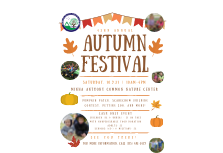
Opportunity Details
This is a fun-filled family day, with games, music, food animals, vendors and more! It is our nonprofits annual fundraiser, proceeds from this event support the Nature Center and are used for school programs and other year-round environmental educational programs.Available Shifts
| Shift Name | Signup Max | Start | End |
|---|---|---|---|
| General | 20 | n/a | n/a |
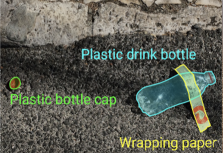
Opportunity Details
This program contributes to the building of the world’s first open-sourced artificial intelligence (AI) model for identification and detection of trash on beaches and in the ocean. Volunteers will attend a webinar in advance on the issue of marine pollution and practical tips on how to collect data and photographs. They will then venture on their own or with family/friends over the following 2 weeks to take photos of marine trash and upload them, as well as clean up the beach. HandsOn will share the collective results with volunteers afterward and a virtual debriefing session will be held 2 weeks after the webinar.1) Virtual Webinar
Date: 21 October 2021
Time: 1500-1600
Duration: 1 hour
2) Photo taking and uploading + Beach Cleanup
Date: 21 October 2021 - 4 November 2021
3) Virtual Debriefing
Date: 4 November 2021
Time: 1500-1530
Duration: 30 mins
Available Shifts
| Shift Name | Signup Max | Start | End |
|---|---|---|---|
| General Volunteers | 100 | n/a | n/a |

Opportunity Details
Position DescriptionWe are looking for a person with Tech Ops experience in designing and developing Reporting and Visualization solutions. You will work closely with internal stakeholders to create custom and complex reports, dashboards, and other visualizations.
Responsibilities
Design and develop reports and analytics as needed to support Greenstand’s internal and Treetracker app related requirements
Design and develop dashboards and other visualizations tobuild digital bridges between our technical database & the operational components of our system
Responsible for documenting requirements, technical specifications and reference materials for reports and visualizations
Supports scheduled and non-recurring reporting needs
Requirements:
Experience with ETL automation, SQL
Experience using reporting and visualization tools
At least 3 hours per week (5+ hours preferable).
Strong communication skills.
In return for your support, we can offer:
Letter confirming your volunteer hours and projects
Professional reference(s)
Valuable experience gained & leadership opportunities
Engagement with a team of global professionals
Being part of an amazingly complex fast-evolving global project
About Greenstand
Greenstand is a fully remote social non-profit organization turning environmental stewardship into a reliable source of income. Our work tackles both extreme poverty and climate change. Our main product is the Treetracker, a mobile app that allows planting organizations and their donors to track the growth of newly planted trees through periodic geotagged photos.
The project is at a really exciting stage and has just been elevated to a Supporting Partner for the United Nations Decade on Ecosystem Restoration. This could not be done without many amazing people contributing their skills and time from around the world.
Read more about our work on Greenstand.org.
To apply vist our website and signup

Opportunity Details
Greenstand is a fully remote social non-profit organization turning environmental stewardship into a reliable source of income. Our work tackles both extreme poverty and climate change. Our main product is Treetracker, a mobile app that allows planting organizations and their donors to track the growth of newly planted trees through periodic geotagged photos. Read more about our work on Greenstand.org.Position Description
Greenstand is looking for an iOS Engineer who can help us launch the iOS version of our Treetracker app, and working with our Android team to ensure brand consistency of releases.
Requirements
Proven experience in iOS development
Self-motivation and time management skills, as we are a fully remote organization with contributors worldwide. Due to scheduling and time zone differences, you may have to develop some projects independently.
Ability to work as a team is necessary as well. You will be expected to collaborate with fellow iOS team members, as well as the Android team.
In return for your support, we can offer:
Letter confirming your volunteer hours and projects
Professional reference(s)
Valuable experience gained & leadership opportunities
Engagement with a team of global professionals
To apply
Please fill out this form and a Greenstander will be in touch shortly: https://forms.gle/AHms4CN1c3vAyUmc6

Opportunity Details
Position DescriptionWe are looking for a volunteer with airflow/python experience to help us author automated ETL (Extract Transform Load) scripts. You will work closely with internal stakeholders and the data reporting team. We are looking for volunteers that have experience in these technologies so they can help us develop our understanding. This position could be a short term consultant type volunteer or a longer term coder.
Responsibilities
Develop ETL pipelines using Airflow, Python, to create a cohesive, automated, and accurate data environment
Requirements:
Experience with programming/scripting languages and data science tools (Airflow, Python)
Experience with ETL automation
Strong communication skills.
In return for your support, we can offer:
Letter confirming your volunteer hours and projects
Professional reference(s)
Valuable experience gained & leadership opportunities
Engagement with a team of global professionals
Being part of an amazingly complex fast evolving global project
About Greenstand
Greenstand is a fully remote social non-profit organization turning environmental stewardship into a reliable source of income. Our work tackles both extreme poverty and climate change. Our main product is the Treetracker, a mobile app that allows planting organizations and their donors to track the growth of newly planted trees through periodic geotagged photos.
The project is at a really exciting stage and has just been elevated to a Supporting Partner for the United Nations Decade on Ecosystem Restoration. This could not be done without many amazing people contributing their skills and time from around the world.
Read more about our work on Greenstand.org.
To apply
Please follow the link below and fill out the sign-up form. Greenstand team member will be in touch soon.
https://docs.google.com/forms/d/e/1FAIpQLSdyLUffLPZZlHR-qfMwch5HkWcZ3kxM6h-eMK5PfGKLD4t8iA/viewform
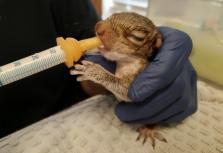
Opportunity Details
Volunteers, interns, and externs play a critical role at South Florida Wildlife Center by increasing our ability to rescue and rehabilitate sick, injured, and orphaned wildlife.
Opportunity Details
Whether you prefer to volunteer remotely or in person, there are several ways you can contribute your time and skills to our mission of creating a more equitable and sustainable future for underserved communities in Los Angeles.Remote Volunteer Opportunities:
Virtual Workshops and Trainings: Share your expertise and knowledge by conducting virtual workshops and trainings for community members. Topics can range from sustainable gardening and urban farming to renewable energy and environmental justice. These virtual sessions will empower individuals with valuable skills and knowledge that they can apply in their own lives and communities.
Online Fundraising and Awareness Campaigns: Help us spread the word about our initiatives by organizing online fundraising and awareness campaigns. Utilize social media platforms, email newsletters, and online communities to raise funds, share our mission, and engage others in supporting our cause. Your efforts will play a crucial role in expanding our network of supporters and generating the resources needed to make a lasting impact.
Content Creation and Storytelling: Use your creativity and storytelling skills to create compelling content that highlights the work of The Niles Foundation. This can include writing blog posts, creating videos, designing graphics, or capturing photographs that showcase our projects, volunteers, and success stories. By sharing these stories, you will help raise awareness about our mission and inspire others to get involved.
In-Person Volunteer Opportunities:
Urban Farming and Gardening: Join us at our urban farms and community gardens to get your hands dirty and contribute to the cultivation of fresh and healthy produce. Help with planting, watering, weeding, and harvesting, while learning about sustainable farming practices. Your efforts will directly impact the availability of nutritious food for underserved communities.
Community Events and Workshops: Assist us in organizing and facilitating community events and workshops. This can involve setting up event spaces, coordinating logistics, leading educational sessions, or providing hands-on support to participants. By engaging directly with community members, you will help foster a sense of empowerment and create spaces for learning and collaboration.
Food Distribution and Outreach: Support our efforts in distributing food resources to underserved communities. This can include packing and distributing food boxes, assisting with mobile grocery store operations, or organizing food drives and distribution events. By ensuring that individuals have access to fresh and healthy food, you will directly contribute to addressing food insecurity in our community.
Please note that in-person volunteer opportunities may be subject to safety guidelines and protocols to ensure the well-being of our volunteers and community members.
No matter how you choose to volunteer, your contribution will make a significant difference in the lives of underserved communities. We value your time, skills, and dedication to our mission. Together, we can create lasting change and build a more equitable and sustainable future for all.
To get involved as a volunteer, please visit our website or reach out to our volunteer coordinator. We will provide you with more information and guide you through the volunteer onboarding process.
Thank you for your commitment to making a positive impact. We look forward to having you as part of our volunteer team at The Niles Foundation.
2024,
The Niles Foundation
